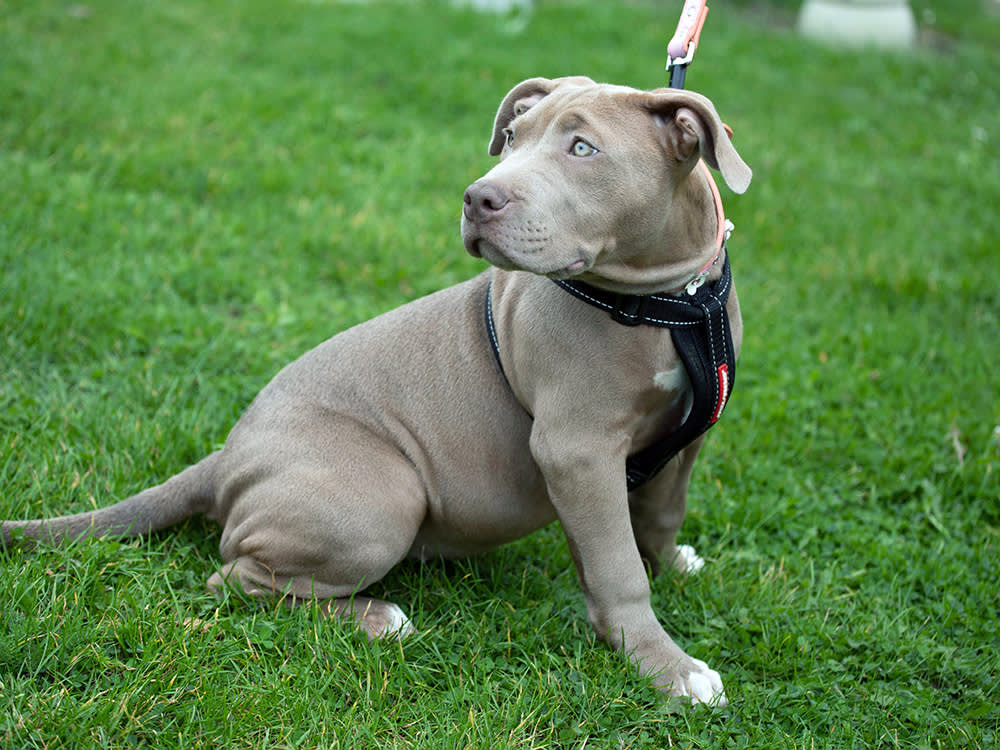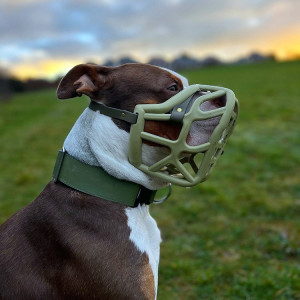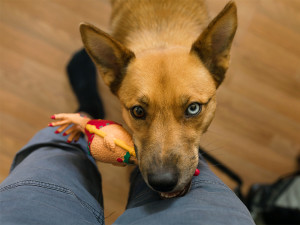One Year On: XL Bully Ban Sees Alarming Increase in Abuse
The UK’s XL Bully ban has led to a tragic rise in cruelty cases

Share Article
Trigger warning: this article contains mentions and descriptions of animal abuse and violence.
One year ago, the UK Government announced the ban of XL Bully dogsopens in a new tab – a decision intended to protect public safety. However, rather than quelling fears and controlling the breed, the situation has spiralled into a crisis point. According to figures released by the Royal Society for the Prevention of Cruelty to Animals (RSPCA)opens in a new tab, cruelty and neglect cases involving XL Bullies have skyrocketed in the months following the ban, revealing the devastating effects of single-breed legislation.

Get (totally free) deals for food, treats, accessories, tech and way more pet parenting must-haves.
The numbers are difficult to stomach. Reports of intentional harm to XL Bullies have surged by a staggering 164 percent compared to the same period last year. The RSPCAopens in a new tab, which released these figures to mark the one-year anniversary of the ban announcement on 15 September 2023, received 103 reports of intentional harm towards these dogs between January and August 2024, compared to just 39 in the same timeframe in 2023. And it’s not just physical harm that’s increased – cases of neglect and abandonment have seen alarming rises as well.
The RSPCA’s figures show that abandonment reports for XL Bullies have leapt by an almost unbelievable 692 percent, from just 13 reports in 2023 to 103 in 2024. As for neglect, the charity saw a 239 percent rise in reported cases, with 366 incidents in the first eight months of 2024 compared to 108 in the previous year.
But why is this happening? According to Dr Samantha Gaines, dog welfare expert at the RSPCA and the charity’s lead expert on single-breed legislation, much of this cruelty may be a direct consequence of the ban itself.
“These are very concerning figures. We’ve seen an increase generally in reports of serious abuse to animals – particularly intentional harm and beatings – but the increase in reports relating specifically to XL Bully types is very alarming and we fear this is as a direct result of the recent UK Government ban on this type of dog,” she said, highlighting how the extra pressure on already struggling dog owners may be driving them to desperate measures.
“This could be a result of the extra pressures this ban has placed on desperate owners who may already be struggling to care for their dogs during this cost of living crisis.”
Let’s face it: XL Bullies haven’t exactly had the best press lately. The breed, which is now one of five illegal dog types in England and Wales under the Dangerous Dogs Act alongside the Pit Bull Terrier, Japanese Tosa, Fila Brasileiro and Dogo Argentino, has been increasingly demonised in the media and by policymakers. These dogs have found themselves the poster pups for dangerous dogs legislation. But are they truly to blame?
The sad truth is that the very laws put in place to protect the public could be contributing to the surge in abuse. According to Dr Gaines, “These could be deliberate acts of cruelty towards dogs who have become increasingly demonised in recent months.” And this demonisation doesn’t just affect the dogs – pet parents too are bearing the brunt, with many struggling under the weight of new restrictions.
Under the ban, which came into force in England and Wales on 31 December last yearopens in a new tab, parents who chose to exempt their XL Bullies from the ban must ensure their dogs are neuteredopens in a new tab, muzzledopens in a new tab in public and kept on a lead at all times. From 1 February 2024, it became a criminal offence to own an XL Bully in England and Wales without a Certificate of Exemption. The Scottish Government followed suit with the same legislation coming into effect north of the border on 1 August 2024.
The RSPCA reports truly disturbing cases of cruelty. Just last week, the body of a decapitated XL Bully was found in a shallow grave in Evesham, Worcestershire. Earlier in the year, another was found floating in a Birmingham canal, trapped in a cage.
These horrifying incidents paint a grim picture of a breed that has been vilified to the point of outright violence. Whilst the public may fear XL Bullies due to isolated incidents, it’s becoming increasingly clear that the bigger danger lies in how these animals are being treated post-ban.
The RSPCA, along with other members of the Dog Control Coalition – a group of welfare and veterinary charities campaigning for a new approach to dog control in the UK – has long called for reform to the UK’s breed-specific legislation. The current laws, they argue, aren’t just failing to protect the public – they’re also leading to widespread animal suffering. Dr Gaines pointed out the inherent flaw in the current approach: “many dogs have been and will be put to sleep simply because they are considered to be dangerous because they look a certain way”.
In the midst of a cost-of-living crisis, having a restricted breed like an XL Bully has become even more challenging. Add to that the heavy fines and legal battles some dog parents face, and it’s easy to see why so many XL Bullies are being abandoned or neglected.
The RSPCA and other animal welfare groups are campaigning for a more evidence-based approach to dog control – one that doesn’t punish entire breeds for the actions of a few dogs (and, more often than not, the failures of their parents). Rather than focusing purely on breed, campaigners argue, the emphasis should be on responsible ownership, training and early intervention for problem behaviour.
Until meaningful reform is introduced, XL Bullies and their parents will continue to bear the brunt of a ban that has done little to enhance public safety while significantly compromising animal welfare. The rise in cruelty and neglect cases is a stark indicator that the current approach isn’t working. Without a shift towards policies focused on responsible pet parenting, better education and addressing individual dog behaviour, this heartbreaking trend is unlikely to reverse anytime soon.

Orla Pentelow
Orla Pentelow is Kinship UK’s Senior Editor. She has previously written for British Vogue, Bustle, Yahoo and The Telegraph. When not at her desk liking dog videos she’s out and about with her rescue pup, Luna, who works primarily as chief distractor.
Related articles
![Photo Courtesy of @doug.thexlbully]() opens in a new tab
opens in a new tabHow to Muzzle Train Your Dog
Contrary to common belief, muzzles aren’t solely for aggressive dogs
![dog bouncing on lead in the countryside with girl]() opens in a new tab
opens in a new tabHow to Make On-Lead Dog Walks More Exciting
There are plenty of ways to spice them up
![Woman sitting in a cafe with her dog.]()
Can Your Shy New Rescue Dog Become a Social Creature?
With patience and positive reinforcement, you can do a lot to make up for lost time with socialisation
![Dog holding a toy and looking up at their owner]() opens in a new tab
opens in a new tabWhat Is Displacement Behaviour In Dogs?
And should you be worried?






